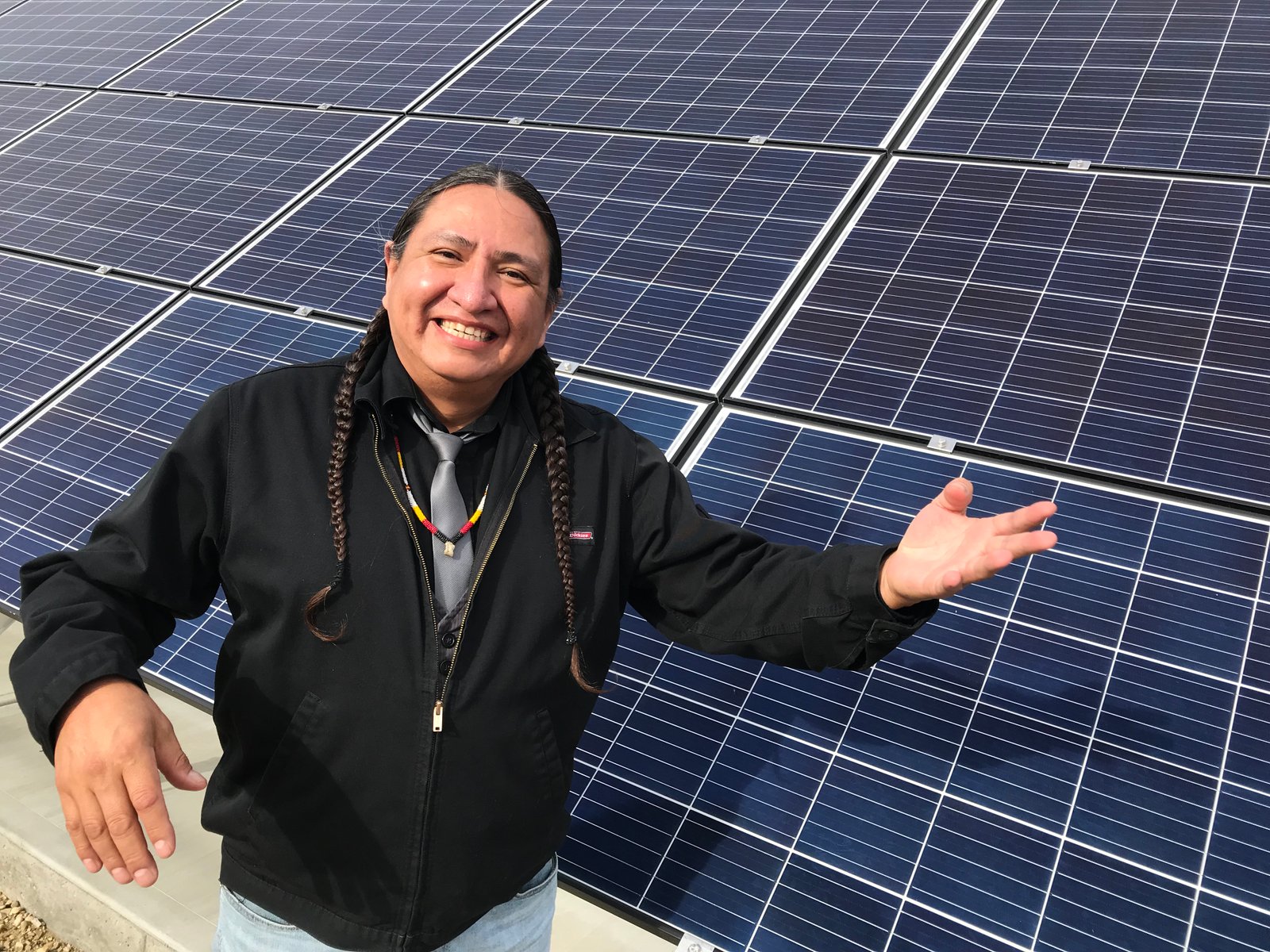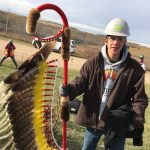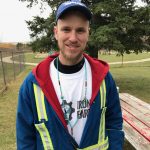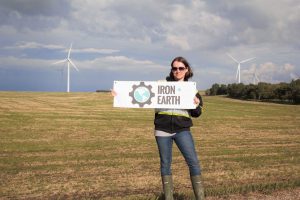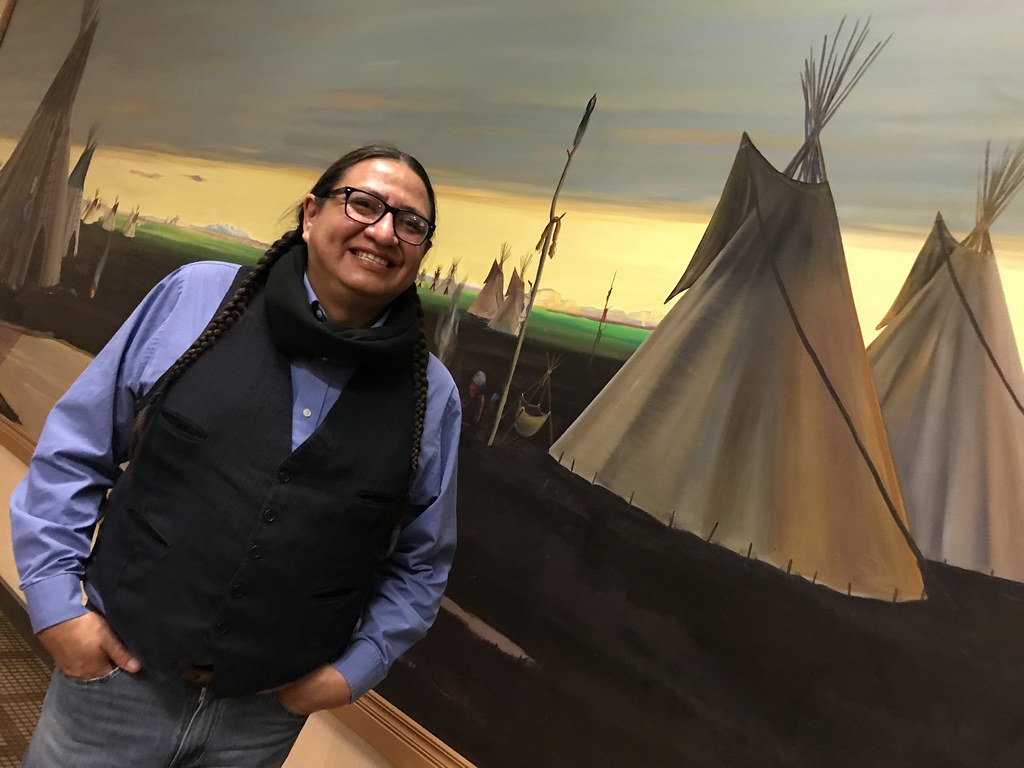A solar partnership in a small First Nations community in Alberta, could help point the way forward for energy workers, indigenous people, and Canada as a whole. At Louis Bull First Nation, in Maskwacis, Alberta, oil industry workers worked side by side with local trainees to install solar modules on the community’s day care centre.
The project is a joint effort between Iron and Earth, an organization led by oilsands workers who wish to train workers in renewable energy and the Louis Bull First Nation.
Solar a natural fit for First Nations
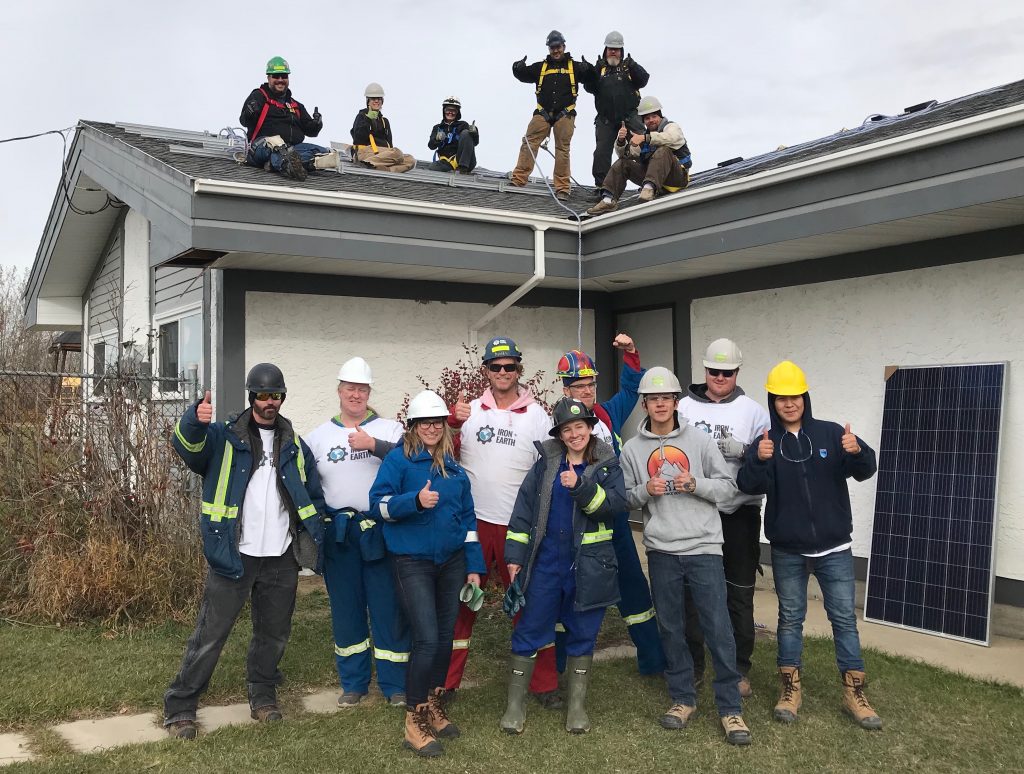
Oilsands workers and Louis Bull Tribe members participated in a joint Louis Bull/Iron and Earth solar training program to learn new skills and become part of energy diversification in Alberta. Photo David Dodge, GreenEnergyFutures.ca
In recent years, Louis Bull has been aggressively pursuing solar power. “It’s important to me that this is clean energy,” says local councillor Desmond Bull. “You know, it shows our responsibility toward environmental stewardship. It shows our responsibility in creating sustainability for those next seven generations—our grandkids, their grandkids.”
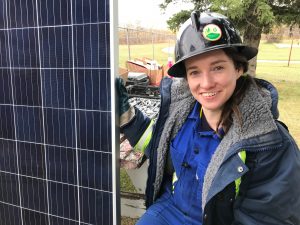
Jen Turner supervised oil rigs in Alberta and Saskatchewan for 10 years. She’s now part of Iron and Earth an organization of former oilsands workers advocating for renewable energy job training. Photo David Dodge, GreenEnergyFutures.ca
Fifteen trainees; oil and gas workers and local First Nations workers, took a five-day upskilling course put on by Gridworks Energy. Louis Bull made a point of extending a cultural embrace to the outsiders. “We started with a pipe ceremony at the beginning of the week, and then on Wednesday afternoon they went into a cultural sweat ceremony,” says Desmond Bull.
Jen Turner, Iron and Earth communications director says she was deeply touched by the gestures, and honoured to team up with the Maskwacis workers. “We were lucky enough to be graciously welcomed into this community. We participated in really special cultural activities. And then, with local participants in the community, we worked on this installation shoulder to shoulder.”
A shift to renewables
Before joining Iron and Earth, Jen Turner worked as an oil rig supervisor across Alberta and Saskatchewan.
“I know what it’s like to be outside covered in drilling mud, at three o’clock in the morning when it’s minus 40.”
With the most recent collapse of oil prices, and the resulting shortage of work, Turner and the other oil workers see renewable energy as a logical diversification of the energy industry. “All of us are here because they are striving towards a brighter future themselves.”
The same could be said of numerous Tribe members: “I think it will be good to be fully solar on the reserve,” says Dashawn Raise, a young member of the Louis Bull Tribe. “I hope to get a little further into this and in the next few months we’ll be installing some solar panels on the band office and the recreation centre.”
Devin Schafers grew up on a farm near Villenuve, Alberta and has worked in refineries for a decade. With work drying up Iron and Earth’s message really resonated with him.
“I’m really hoping that I can get into the alternative energies and help advance them in some way, whether it be through invention or installation, or promotion.
“I’m hoping that what I’ve learned here on this course will help me make the world a little bit better place, because green technologies are the way to go.”
The partnership also meshed perfectly with Gridworks’ corporate ethos, says president and owner Randall Benson. “The initiative was to have this program on the reserve of Louis Bull Tribe, and also not only to retrain members from the community, but also retrain individuals from the oil and gas sector who have perhaps lost their jobs, or are in some sort of hardship because of the bust.”
During her time with Iron and Earth, Jen Turner has become committed to the concept of sustainability. More than ever, she realizes that Alberta—and Canada—can no longer afford to rely so heavily on our petroleum resources. “I’ve always believed that it’s a tremendous vulnerability to stake too much on a single resource. In Canada we’re guilty of making that mistake.”
The end of “boom and bust”
Having seen first-hand the environmental costs of petroleum extraction, and the emotional costs of boom-and-bust cycles, Turner sees a good future in renewable energy. “Sustainability to me means ethical practice that’s less taxing to the earth, that’s cost competitive. That provides stable incomes for people, and healthy communities.”
Through Iron and Earth, Turner is helping to clear a path for other oil and gas workers. “I will use my voice to help bring visibility to highly skilled, but often struggling, workers across Canada who are still one of Canada’s greatest resources,” she says. “I honestly believe that they will be the ones to bring Canada forward into a more diversified energy future.”
New industry, new opportunity for community
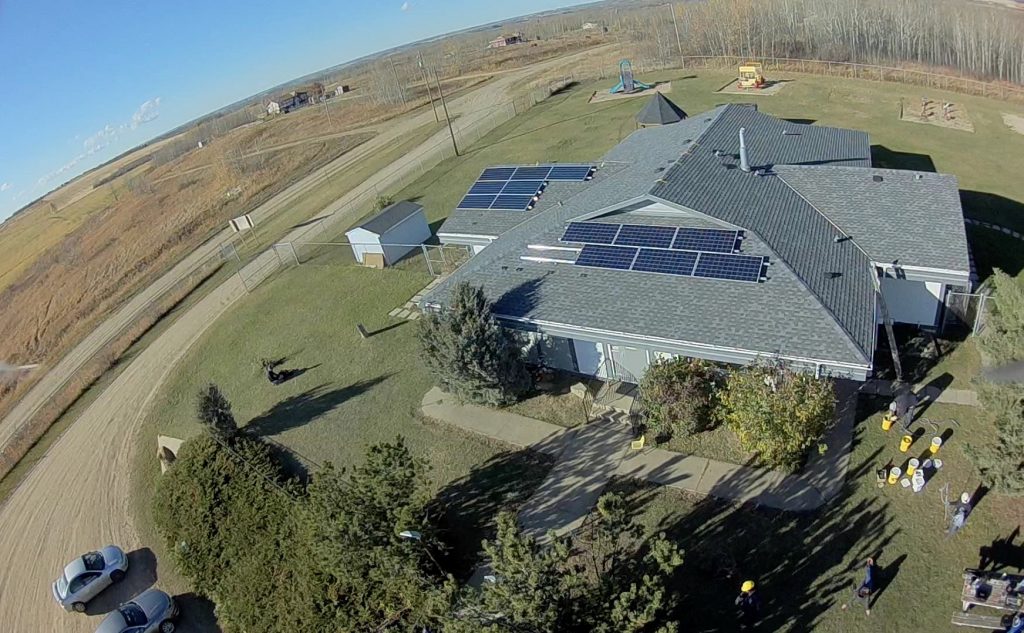
Aerial of the Louis Bull Daycare Centre with solar installed by the oilsands workers and Louis Bull Tribe members in their 5-day solar training course. Louis Bull Tribe now has 188 kilowatts of solar installed on various buildings. Photo Devin Schaefers
Desmond Bull is grateful that Gridworks and Iron and Earth brought their expertise into the community. “For us, having our membership do the installations, to be a part of the process, it resonates down to every community member,” he observes.
“Everyone can say, my cousin installed that, my uncle installed that, my auntie, my niece. There’s that connection that you have—that pride of ownership.”
Louis Bull Tribe has installed 188 kilowatts of solar on their adult training centre, transfer station, heath services, headstart, firehall and other public works buildings. And this is only the beginning, says Bull.
“I mean if we can prove this can be done here in a First Nation community I believe every municipality or county, every city and village has that opportunity to move in this direction also so they can become more self-sufficient on their own,” says Bull. He says the key is building capacity and training people in your own jurisdiction.
The Louis Bull solar installation is the first project in Iron and Earth’s “Solar Skills” program and it’s sparked a sense of mission in Jen Turner.
“I’m going to continue my relationship with Louis Bull First Nation and other First Nations. I’m going to learn and listen, and get past my own ignorance. I’m going to continue to be an advocate for cross-cultural partnerships and working together for common goals. And I’m going to continue to bring the plight of workers to the forefront of the Canadian media landscape.”
Desmond Bull set out to help his First Nation develop clean energy and create new opportunities, but he now also sees it as a unique opportunity to connect and empower all communities.
“The cultural integration really helped this program be a lot more successful,” says Bull. “You know some of them never took part in a pipe ceremony or a sweat someone even had Moose meat. I think it’s it goes back to understanding I believe in what the treaties are, that we as First Nations and Canadian citizens we need to take care of each other, take care of the land, and take care of the future generations.”
